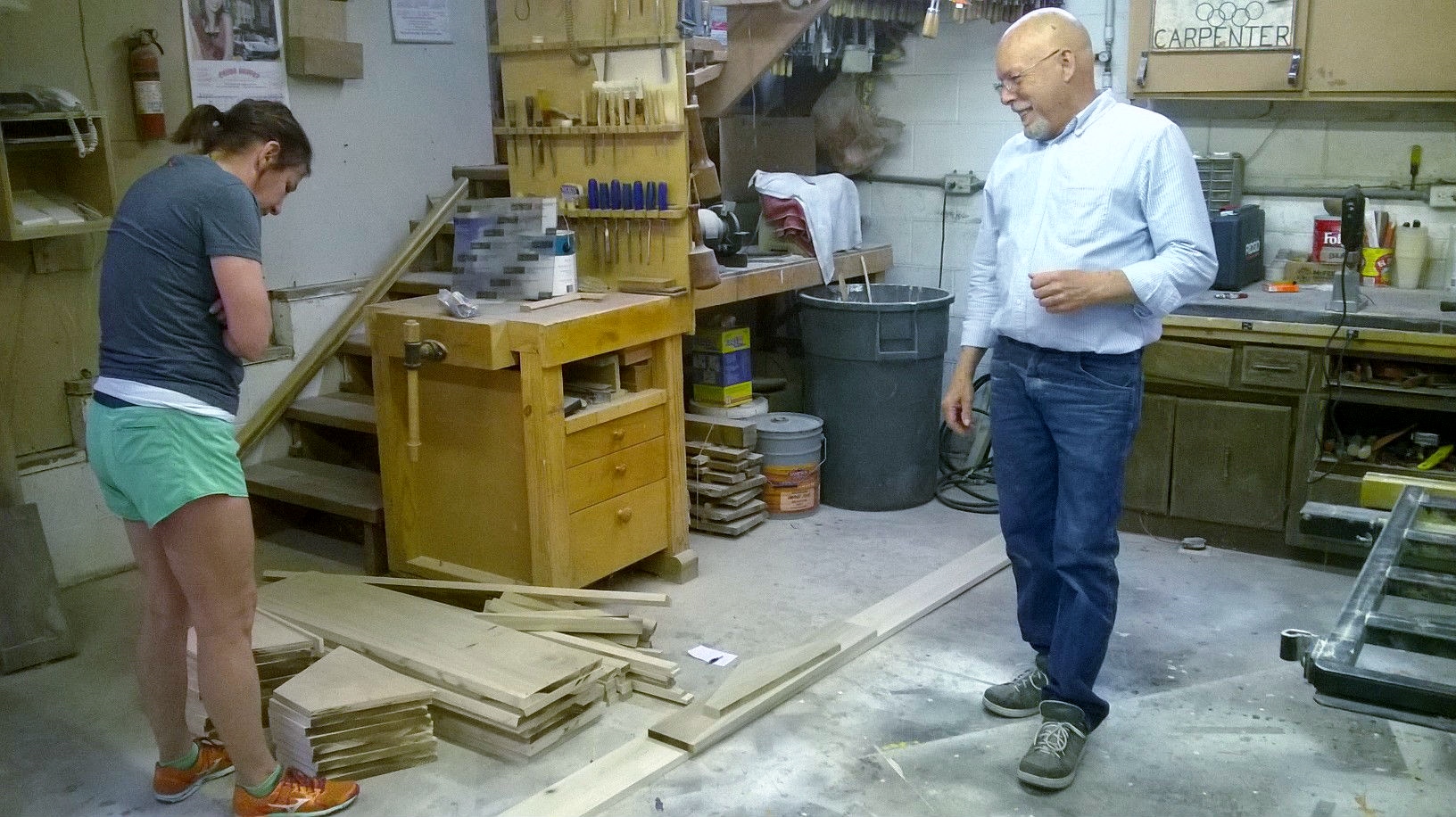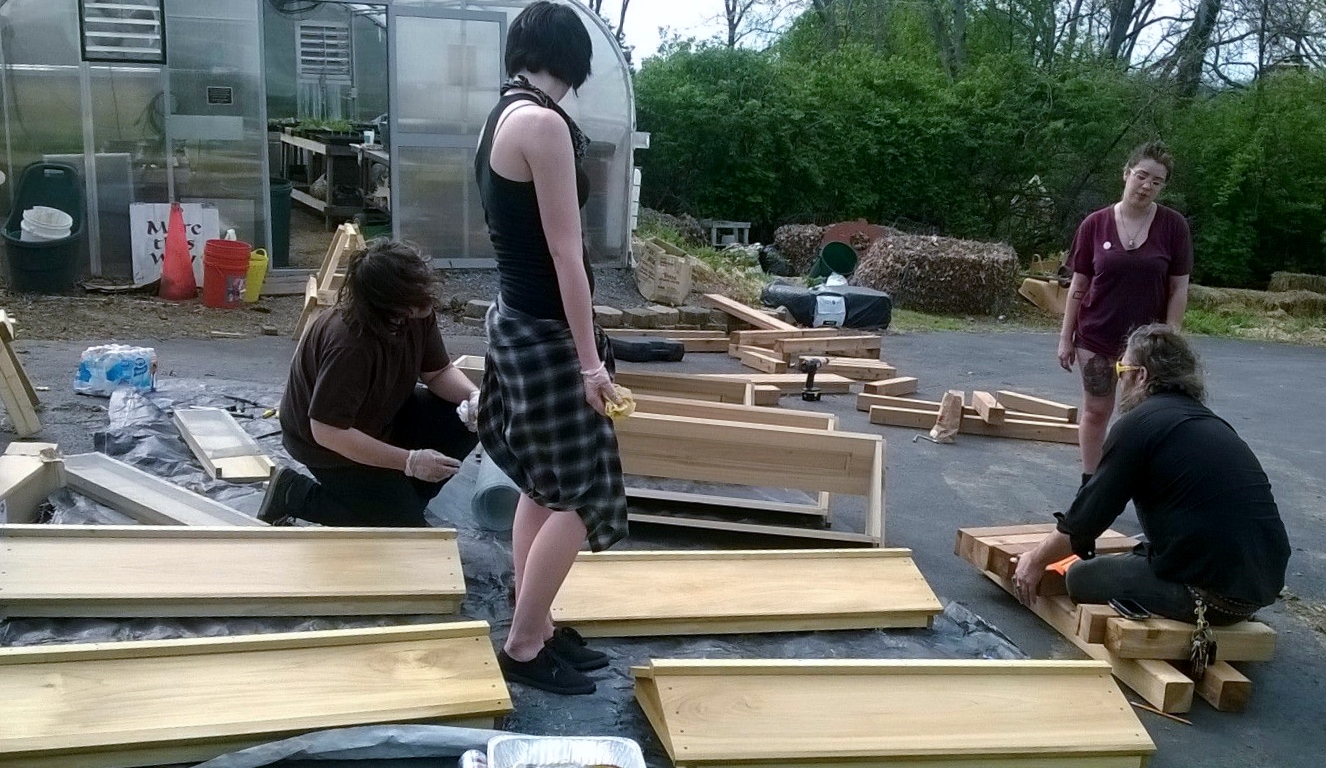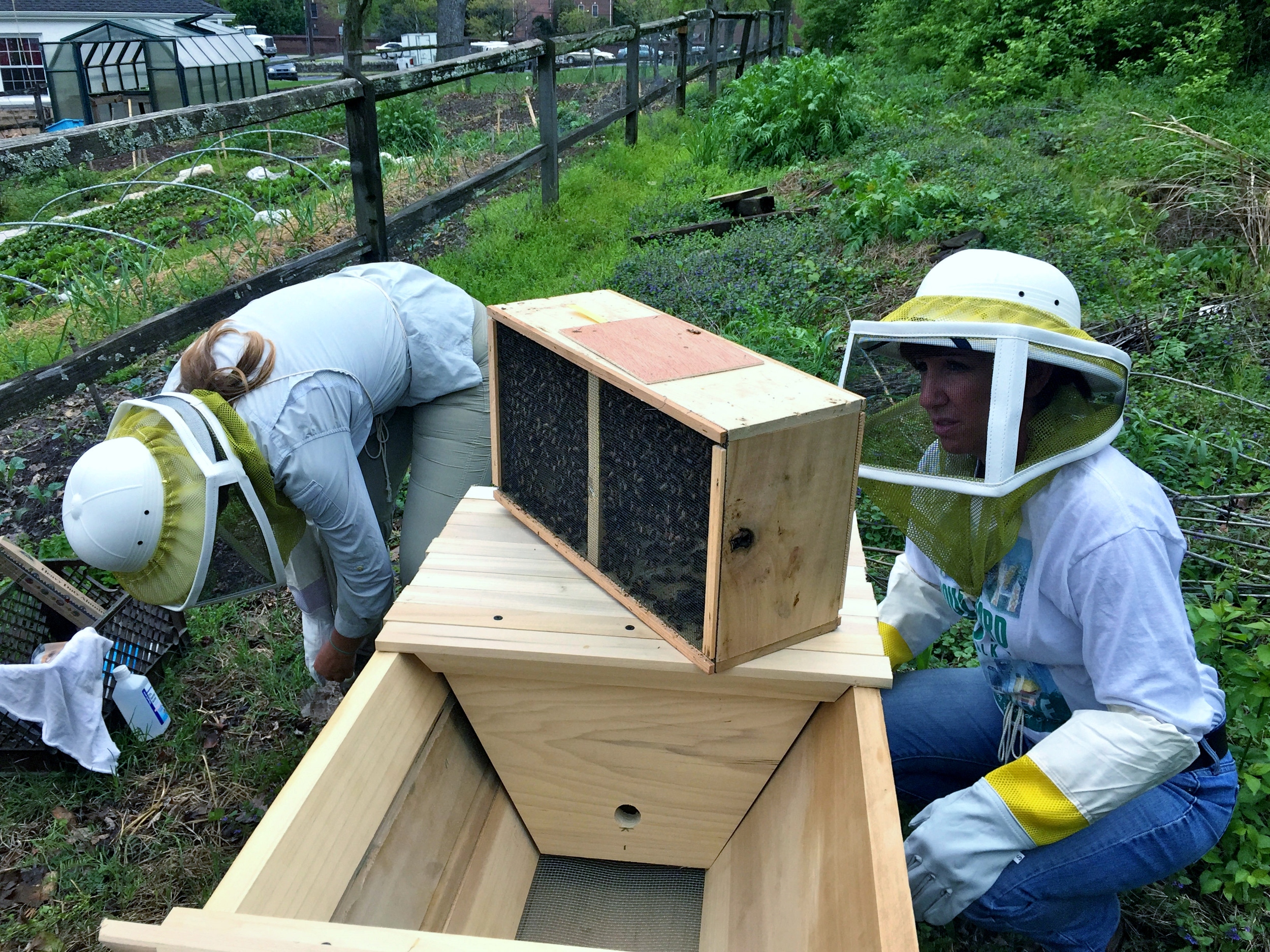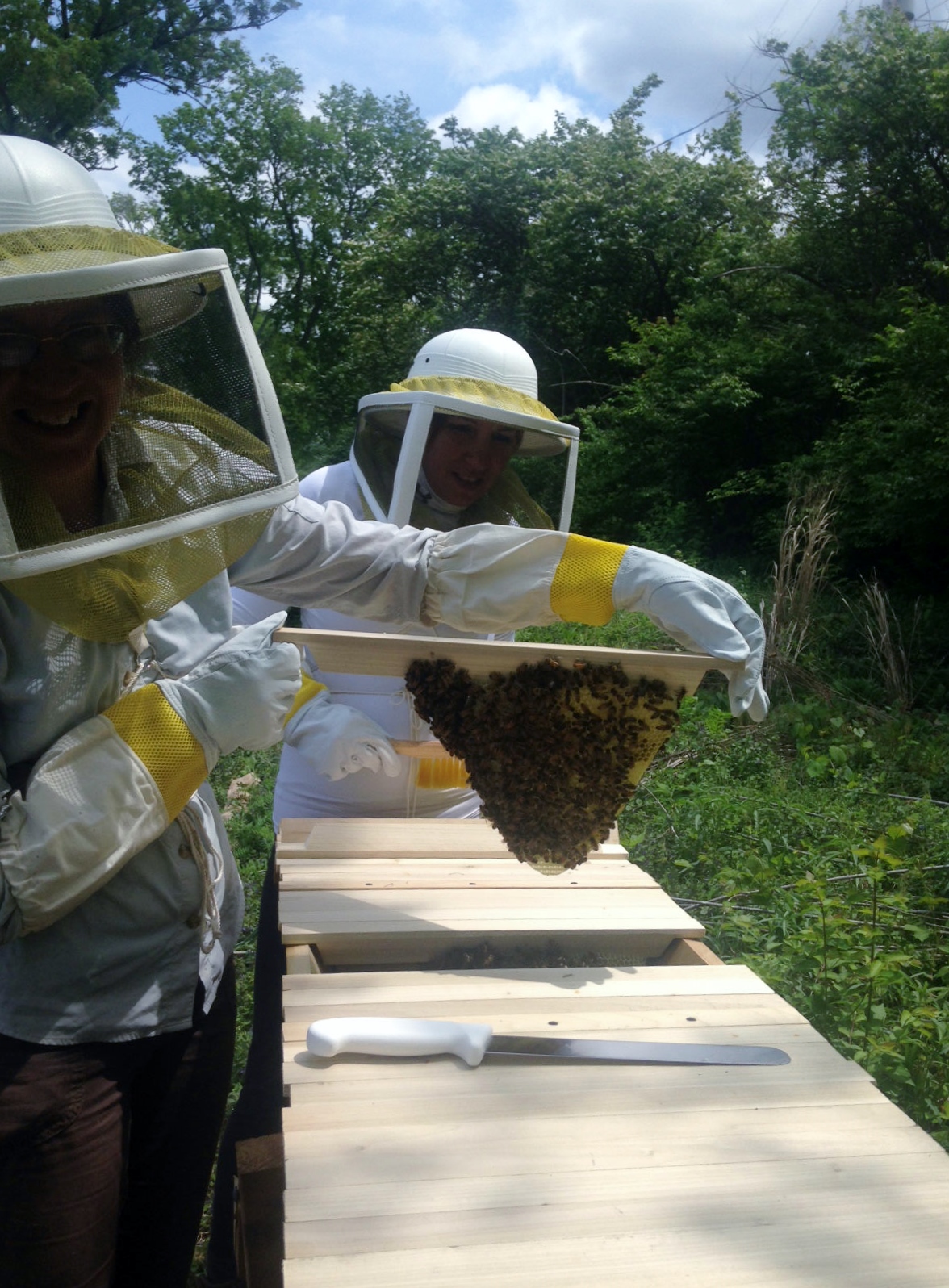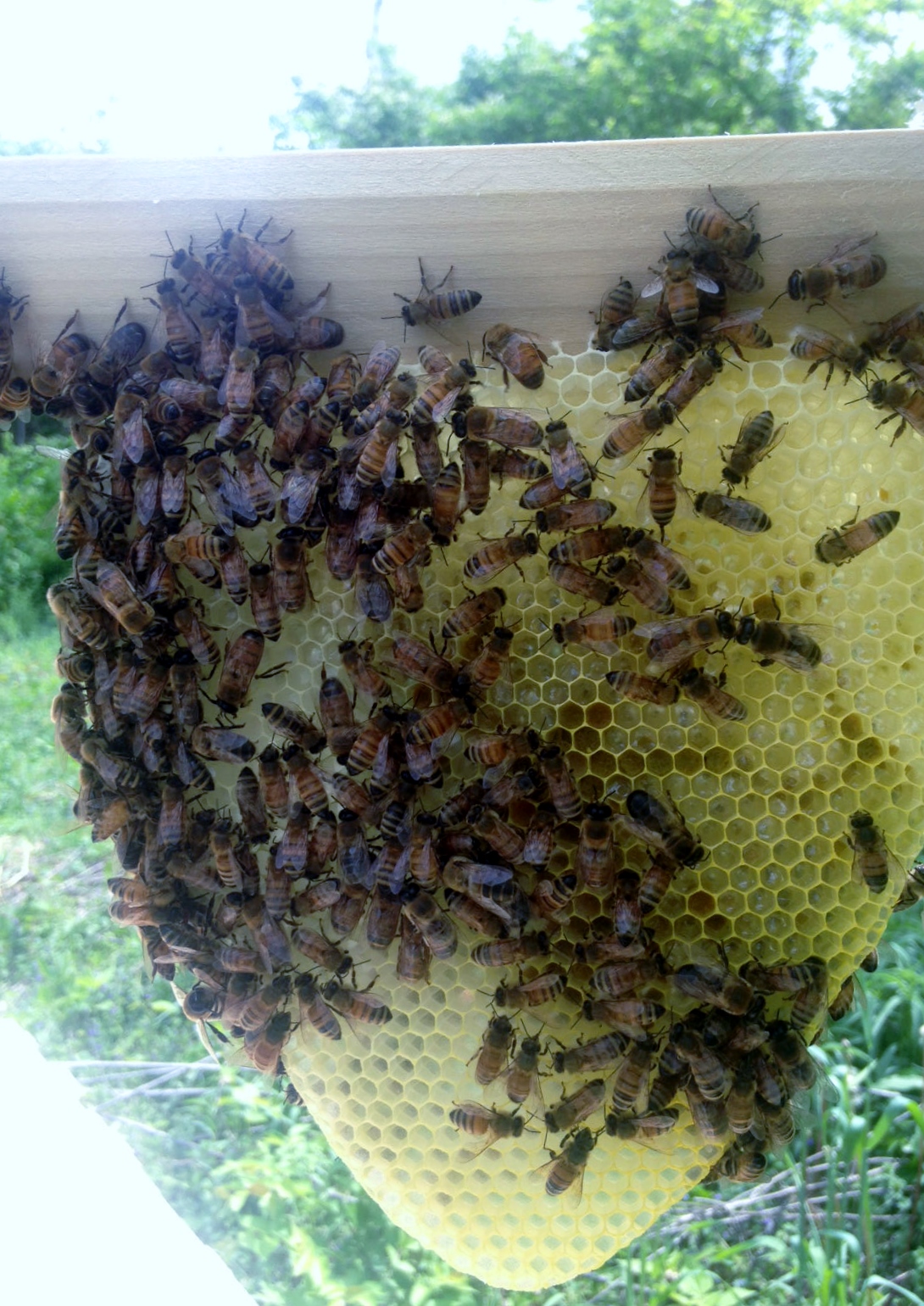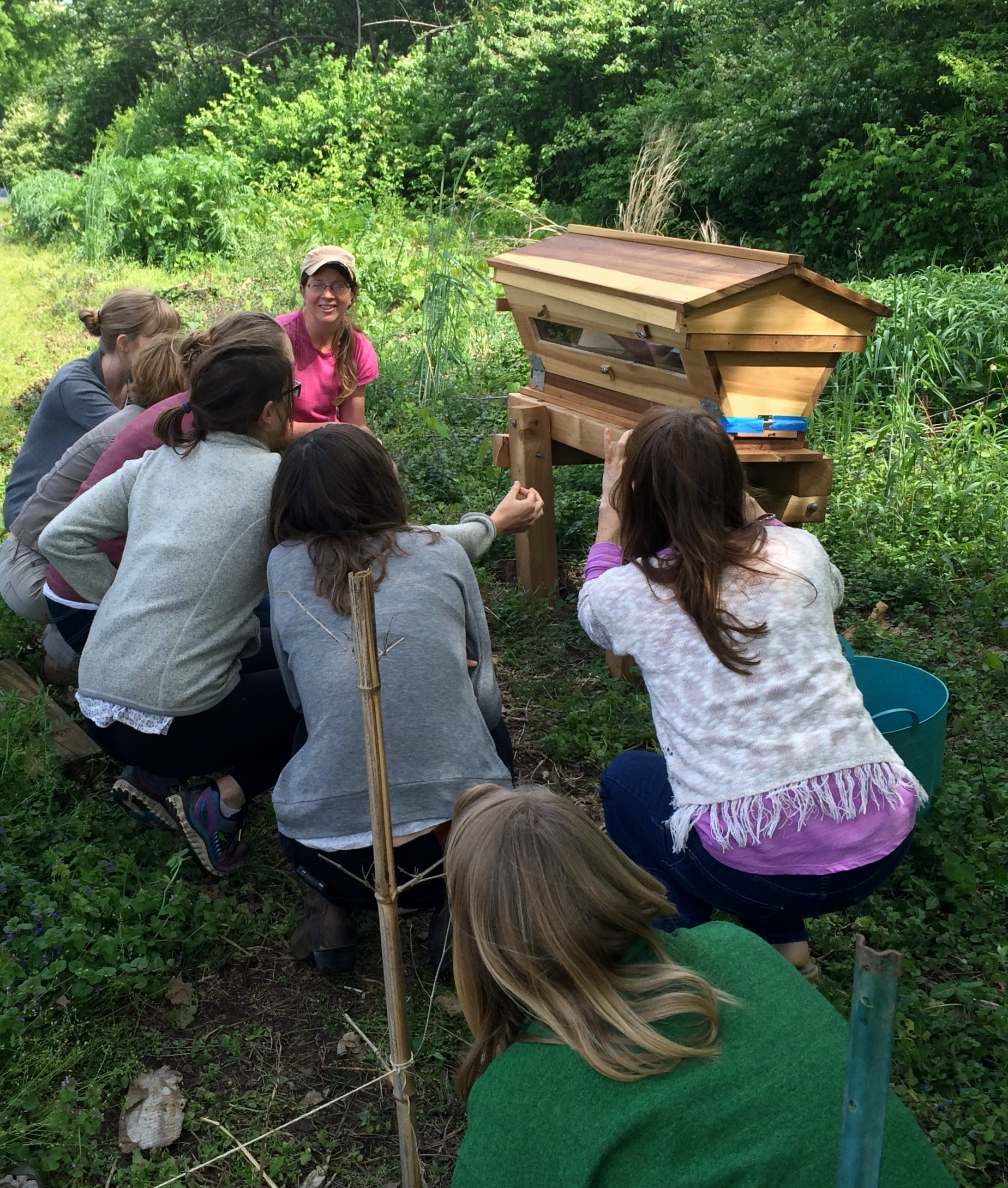A happy honeybee forages on a cover crop of crimson clover planted at our Wedgewood Urban Gardens.
Go to your fields and your gardens, and you shall learn that it is the pleasure of the bee to gather honey of the flower,
But it is also the pleasure of the flower to yield its honey to the bee.
For to the bee a flower is a fountain of life,
And to the flower a bee is a messenger of love,
And to both, bee and flower, the giving and the receiving of pleasure is a need and an ecstasy.
Kahlil Gibran, “On Pleasure”
We are so pleased to join the growing movement of urban beekeepers in Nashville and around the world. We welcomed three hives into our two urban gardens this spring and the tens of thousands of bees that now call TNFP home seem to be happily adjusting, building comb and foraging for nectar. Bees pollinate seventy percent of human food crops which supply about ninety percent of the world’s nutrition. While we hadn’t noticed that the wild bees in and around our gardens weren’t doing their job, we thought it was a good time to properly build a home for our own honeybee populations.
Two top bar hives installed at our Wedgewood Urban Gardens.
Humans and bees have co-evolved for millennia and at this point we pretty much can’t survive without each other - which isn’t to say that we aren’t trying. Many factors play into the honeybee colony collapses around the globe but almost all of them are related to human-caused environmental degradations. One of the best things we can do to help the bees (and therefore feed ourselves) is to increase the genetic diversity of the existing bee populations by promoting (and doing!) backyard beekeeping.
As is true of so many things related to our work, our bees would not have been able to call TNFP home without the hands of many wonderful volunteers and friends. We owe special thanks to Stephanie Weinzapfel, Jamie Huling, and Linda Bodfish in addition to many other folks who supported this project along the way. For a photo essay of the first weeks of beekeeping see below. For more information about bees, visit https://spikenardfarm.org. Drop in to see our bees anytime!
